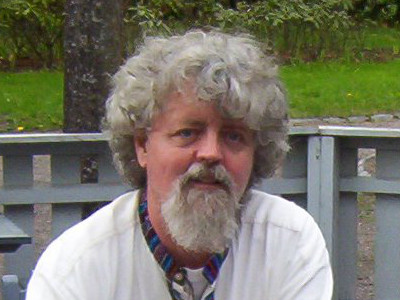Bio
Helgi Guðmundsson was born on October 9, 1943 at Staðastaður in Snæfellsnes where his father was a minister and his mother a housewife, in accordance with the custom of the time. Just after his birth, he moved to Neskaupsstaður with his parents and two older brothers. When Helgi was nine years old his father suddenly passed away and the children, which were four by then, were seperated due to their mothers illness. Helgi lived at Skuggahlíð in Norðfjarðarhreppur in the same region for the next ten years, with some intervals though. Helgi studied carpentry and graduated from the Reykjavík Trade School as a carpenter in 1967. He received his mastership in the trade in Akureyri in 1974.
Helgi started getting involved in politics and taking part in social matters as a teenager and for instance became president of the Trade Student Association and was later in the lead of the carpentry association. Soon after finishing his education, Helgi moved north, first to Húsavík and then to Akureyri in 1971. Helgi's interest in social matters led to a change in his career. He became editor of a paper published by Alþýðubandalagið (The People's Alliance) in the Norht-East, worked for the unions in the region, was president of The Carpentry Association of Akureyri, a member of the town council, and sat on the board of Menningar-og fræðuslusamband alþýðu (The People's Culture- and Educational Society of Iceland) for two decades, and was it's president for eight years.
In 1984 Helgi moved to Reykjavík with his family and after that his writing career started for real. He worked as a journalist for the newspaper Þjóðviljinn for some years, and was the paper's editor together with Árni Bergmann from 1990 – 1992, when the publication was stopped. Helgi's first books, Þeir máluðu bæinn rauðan (They Painted the Town Red) and the children's book Markús Árelíus were published in 1989. The former is a history book, dealing with politics and social issues in his home region of Norðfjörður. Since then, he has published many other books. Helgi has also written numerous articles for newspapers and magazines about various issues.
From the Author
Where are you from?
I have often been asked if I see myself as a historian or as a writer. The answer is neither original nor deep: I am a writer who is interested in history; I want to tell a story. As I go along I tend to add things, things that matter to me – I am a builder with my sociological roots in the workers union. How does a man with that kind of education and background manage to become a writer? On that subject I have a few words for you.
There are some things that a builder and a writer have in common. The first and most obvious is the demand for excellence. The master builder who taught me the trade told us that we should always do our utmost and leave every project in such a way that we could proudly and upright view the finished work. And it is true that few products of human endeavour stare you as blatantly in the eye each and every day of a human’s existence as the handy work of builders. Buildings and objects are constantly in our line of vision and not many things have as much impact on our environment and assist us in having a bearable life, we wake up in houses that builders have built, walk through doors that they have installed, sit on chairs that they have built and lie down to rest in beds they made and lastly we are given a farewell in the coffins they have made.
True, not all builders are conscientious in their work, nor are all writers, but most of us can admire good craftsmanship, beautiful buildings, safe power stations and steady bridges just like we can admire good books.
Secondly I mention the structural support. A history book or novels that lack structure are like a wooden house without any structural supports. It can stay up for a while but collapses in the storm of criticism and turns into words on a page, words that nobody remembers come springtime. The same happens to a house without structural supports, it will not withstand the strong northern wind or a powerful snowstorm, and it collapses like a house of cards and turns to a pile of planks or rubble. But the structure is not always visible. When the work is done properly the structure falls perfectly in line with the form so that the result is a beautiful and sound building, just like a book becomes a perfect work when form, structure and subject matter deliver the authors idea beautifully to the reader.
Lastly I come to the negotiations, I was for a long time in a group of good friends who had to negotiate the contracts for the builders union, on top of that I also worked for a long time in local politics. Doing that sort of work you wake up every day knowing that what you have to do is to make the deal; most of the time these were minor disagreements on site that had to be solved, but sometimes we had to deal with the famous big picture, about standards of living, about being able to live in proper housing, about securing decent living for those worst off, about living like humans. When I stand in front of my screen or work with authorisations, I am constantly doing negotiations with myself: is this sentence good enough? What should I do with this authorisation, should I cut a large chunk out of the work and start again? Just like when negotiating for the union, what you have to do is to hang in there, do not jump to conclusions and go to your work humbly and last but not least: have the courage to type that period.
But I am not only a builder and writer with an interest in history – I am also from the eastern part of Iceland, though my ancestry also lies in other parts of the country. When I was growing up I learnt that words where precious. In my youth elderly people did not say much. I knew people who quite effortlessly could stay silent with you for hours on end, even for days or longer in some cases and there were men – also in the north of Iceland – who had the skill of the conversation of few but golden words so well honed that they would leave you mid sentence and without hesitation continue where they had left off when you bumped into them in the street a week later.
Does that answer the question where I come from?
Helgi Guðmundsson, 2001.
Translated by Dagur Gunnarsson.
About the Author
Of Men and Animals. The Works of Helgi Guðmundsson
Helgi Guðmundsson’s writing career spans more than a decade. He has written books for children and teenagers, as well books about history.
Helgi’s first children’s book, Markús Árelíus, came out in 1990 and was the first of three about the cat Markús Árelíus and his adventures. The point of view in these stories is unusual, they are first person narratives told by Markús himself. Thus, readers get to know life through the cat’s eye, and if we are to believe Markús Árelíus many things in human behavior seem quite bizarre to cats. The values put forward in these stories are in many ways unusual, being based on what suits cats more than what suits men. The things most important to Markús Árelíus are to have a roof over his head, get enough to eat, and to be able to count on his family’s support. At the start of the story, the cat is in many ways like an immature child that is controlled by it’s urges and doesn’t respect any rights of ownership, but as the stories progress Markús develops some sort of a sense of responsibility, although quite primitive.
The first book depicts the childhood pranks of Markús Árelíus. He moves in with the family at Hrafnahlíð 14 in an unnamed town up north. The man of the house is the writer Ólafur Eiríksson, sometimes called Lobbi or just the poet. His wife is the teacher Hildur Einarsdóttir and their daughter is Berghildur, or Begga, who is twelve when the story takes off. Right from the start, the cat makes it clear to the reader that his place within the family is important, and that people and cat learn to understand one another through respect and fondness. Markús Árelíus however does not understand much of what those people say who do not know how to interact with cats. The communication between the cat and the human members of the family goes far beyond reality when it comes to men and animals understanding one another. Their conversations, explanations and the understanding Markús Árelíus gets from his family, play a big role in him becoming the respectable cat he is in the end, for he is fondly guided after each mistake, even if he does not always see how he can be blamed for what happened.
The poet firmly believes in Markús Árelíus’ abilities and thinks he is the smartest of all cats. No matter what trouble the cat gets himself into, he can always count on the poet’s support. The admiration goes so far that Ólafur writes a play about the cat, which is staged both in Reykjavík and shown on television.
Markús Árelíus’ role model and conscience is his brother, Pétur, who lives close by. Not because Pétur is older and therefore more experienced. At first, the brothers were just as lively and did all kinds of pranks together. Pétur however was unlucky enough (or lucky, depending on how you look at it) to be sent to the vet soon after he started showing an interest in female cats and came back home lazy and quiet. Pétur never takes a step outside virtue’s path and he has a solution to every problem, which comes in handy as his brother is always getting himself into trouble. Markús Árelíus on the other hand is controlled by his urges, whether he can smell cream out some kitchen window, feels compelled to tease one of the dogs in the neighborhood or wants to visit a cute female cat close by. For this reason, he is not the most popular domestic cat around and is well known for his pranks. This goes so far that a society is formed, aimed at him, but with the agenda of banning cats on the loose in the neighborhood. The threat this poses to the cats is such that all of them, Markús Árelíus’ friends and enemies (as he is controversial like all great individuals), form an army under Pétur’s control.
The second book in the trilogy is Markús Árelíus hrökklast að heiman (Markús Árelíus is Driven Away from Home). The family at Hrafnahlíð 14 becomes bigger, when the poet and Hildur have a baby boy. Like a child that has a new brother or sister, Markús Árelíus feels rejected. He feels left out and thinks he doesn’t get the same attention and affection he got before the baby came. Things finally get totally out of hand when relatives, who do not know how to interact with cats, temporally move in with the family when the baby is going to be christened. After having to endure bad treatment from the boys in the visiting family, the escapes the situation, and when he comes back and finds that his usual window is closed, he has had enough. He decides to turn his back on his loved ones and lead the life of a stray cat. He makes his home in an old deserted fish factory.
Markús Árelíus’ adventures are however more exciting than just staying put in badly smelling old buildings. Before long, he has fallen into the ocean, quite brilliantly, and is saved on board the fishing vessel Ísbakur by the ship dog Jobbi and the crew. Unlike other dogs Markús knows, Jobbi is quite smart, although the cat can not understand his unconditional obedience to humans. They become good friends and since the crew is not used to dealing with cats and Markús understands little of what they say at the start, Jobbi translates and teaches him how to get by on board the ship. Of course Markús cannot totally live by the rules and therefore he gets his foot into the mouth of a catfish, resulting in the men finding him a suitable nick name.
The life on board the ship is described in a lively and interesting way for children who are used to life on dry land. Here, as always in Helgi’s books, educational things are dressed up in a funny and interesting way, making them an integral part of the story.
Even if Markús is quite content onboard the ship and can even imagine becoming a ship-cat, he cannot resist the temptation of jumping on shore in the east fjords and takes off into town. He is of course in the wrong part of the country and far away from home. Markús Árelíus is by nature very much an opportunist. The most obvious thing is to become a stray cat again, but a loveable cat like him has no trouble making new friends and finding a home if it comes to that. He ends up being taken in by an old lady called Hallfríður and her cat, Þormóður rammi.
Hallfríður has a strange way of making Markús Árelíus aware of his behavior, and while he lives with her it improves quite a lot. When his brother Pétur isn’t around, Markús needs to think for himself and he turns out to be fully capable of that, even if he from time to time steps out from this narrow path and makes a few loops on his way.
Finally, his family up north gets wind of where he is after all his travels on see and land. He is very happy to get home, and the baby boy, who has gotten the name Einar, turns out not to be so bad after all. The important thing however is that Markús has himself gained a little “brother.” The family now has a little puppy and as a sign of his maturity, Markús does not take this badly. He even gets to name him after his friend who saved his life, the ship dog Jobbi.
The books about this lively cat are amusement stories at their core. The main character, Markús Árelíus, behaves as you would expect a cat to do, but he also has some human characteristics. As already mentioned, he can talk and express himself both to other animals and to humans, and without doubt he has more intelligence than the average cat. What differentiates Helgi Guðmundsson’s stories from other amusing stories about animals and adds depth to them, is that in the background there is a realistic description of a normal family life with the ups and downs of the everyday world.
This is especially prominent in the third story about the family at Hrafnahlíð 14 and their housecat, Markús Árelíus flytur suður (Markús Árelíus Goes South). In this book the family decides to move house and settle in Reykjavík. Hildur, the woman of the house, has made a career for herself in politics, and for this reason the family needs to move to another part of the country. Not everyone is happy about the move, and it doesn’t make things easier that Begga has now gotten engaged to her former classmate Jóhannes, Markús Árelíus’ arch enemy. These new developments lead the couple, the poet and Hildur, to each take their own course and in the end they break up. Hildur moves out with little Einar and the poet stays behind with the cat and the dog. To make things even worse, the housekeeper who is hired to clean the house hates cats. Furthermore, the poet is not in good health and stays away from home a lot and the animals are lonely and miserable. Markús Árelíus himself loses one ear and crushes his tale. Obviously, the group in the new house down south is a rather poor one. The cat’s troubles in this book can be likened to these of a teenager from a broken home. He no longer knows what is expected from him and greatly misses his old life.
A traditional ending in a children’s story could have been the happy one, for the family to be reunited and live happily together. Here, the author however doesn’t shy away from telling a different and more realistic story. Hildur and Ólafur have separated for good. The last chapter of the book is called “Lífið heldur áfram” (Life Goes On). Through Markús Árelíus’ eyes, the readers witness the poet regaining his former joy of life, with a new partner, and laughter can be heard in the house again. A different life has been started, and the readers say farewell to the cat that has – in the trilogy. He limps after having been caught in the catfish’s mouth, only has one ear and a damaged tail, but has gained much experience.
Helgi Guðmundsson’s fourth book is Leopold sirkusljón hrellir borgarbúa (Leopold the Circus Lion Scares the Townspeople). Animals are still at the forefront, but unlike the stories about Markús Árelíus, this one is purely a playful amusement story.
At the start of the book a circus comes to Reykjavík. The circus lion Leopold is terribly bored and decides to run away in the middle of his act, of course terrifying the inhabitants of the city. The story goes to Laugardalur valley and from there out to the island Viðey off the Reykjavík coast where the lion becomes part of the society of old elves who speak in some kind of teenage tongue. For some time the lion becomes invisible and people’s search for it thus becomes even more funny and hopeless in the eyes of the readers.
The humans do not know what to do, since no one knows where the lion has escaped to, but the animals in the Reykjavík domestic zoo are more clever, and not only do they find the lion, they also manage to overpower it. Here, as often in Helgi’s work, the solution is not brought about by the power of size, but the ingenuity of the smallest. With the help of the animals in the domestic zoo, mice manage to overpower the lion by crawling into its enormous ears and squeak. The noise paralyzes the lion, making it easy for the humans to capture it.
The book is firmly placed in Reykjavík as mentioned, and this adds value to it for those children who are familiar with the territory.
Helgi’s fifth book, Marsibil, is written for children and teenagers. This is a tightly woven and demanding story that deals with subject matters that are not common in books for this age group. Marsibil, the title character, tells the story which spans one year. She lives with her father in Reykjavík but has a good grandmother who she is named after in a small fishing village in the west fjords. She and her father spend every summer with the grandmother, as well as Christmas and New Years, making this the girl’s second home. Her best friend is the boy Halldór, called Dóri, and he is her classmate. The children are both twelve years old, but very different personalities. She is a sensible girl, quiet and determined, but he is hyperactive with ADD (attention deficit disorder) and has a hard time sitting still and concentrating. This syndrome is described in a very credible way, and the author draws attention to both negative and positive aspects of it. Dóri has little self-control and he doesn’t do well in school. He tends to lose control of himself and his mother has a hard time dealing with him. On the positive side, he is very creative, full of ideas and productive at what he decides to take on.
The grandmother in the west fjords, the older Marsibil, is a colorful character. At first she seems to be quite a common old lady who bakes the traditional Icelandic kleinur, and her granddaughter sees her as such at the start of the story. As the story progresses, it becomes clear that she has a powerful status in the village and in fact runs the local fishing company from her kitchen. She has lost both her husband and son to the sea, at the same time, and was forced to take over the company. The business prospers and grows under her control, and she becomes quite wealthy, although she keeps this to herself.
Marsibil’s father is a quiet man, works as a plumber in the winter, but is a fisherman in the summers. He takes good care of his daughter and wants her to be happy and successful. Dóri is also raised by a single parent, his mother, Stína, had him with a foreign man who she has no contact with.
Reykjavík, the children’s home town, is portrayed as the opposite of the little village in the west. City children who read the book can learn a lot about village life where everything evolves around fish, but Reykjavík is also portrayed as an alien place. The older Marsibil has not been to Reykjavík for 60 years when she decides to visit the capital. Various things are foreign to her, and it becomes the kid’s task to be her guides. Thus, the oppositions of city and country never become clichéd. The younger Marsibil describes both places, but her grandmother and Dóri are each in their own way, full of wonder about these different places. Grandma doesn’t understand the consumerism in the city, as well as the size, and culture and art are foreign to her, but Dóri at first doesn’t understand the values in the west. Neither place is depicted in a one sided way, both positive and negative things are put in the limelight.
What makes the story about Marsibil special is that it shows life in a very honest and direct way. Things are not made prettier than they are, characters go through sorrow and happiness in turns, but life goes on. The middle aged priest in the west, who at the start of the story is miserable because his wife has left him for another man, is at the end happily in love and has just become a father. Grown men get into bloody fights, but end up in the same home and learn to live with one another. Grandma Marsibil loses a husband and son but goes on and ends up building an empire. And Dóri is about to get to know his father, but loses him before they even meet.
At the end, Marsibil’s world has been turned upside down. Many of her friends in the west have turned against her family and she realizes that nothing will become as it was before. She has however gained maturity enough to be able to face whatever life brings her way, and to always look ahead. She has lost her childhood innocence and takes a fearless step into the world of grown-ups.
Margrét Tryggvadóttir, 2001.
Translated by Kristín Viðarsdóttir.
Til baka (Back)
Read more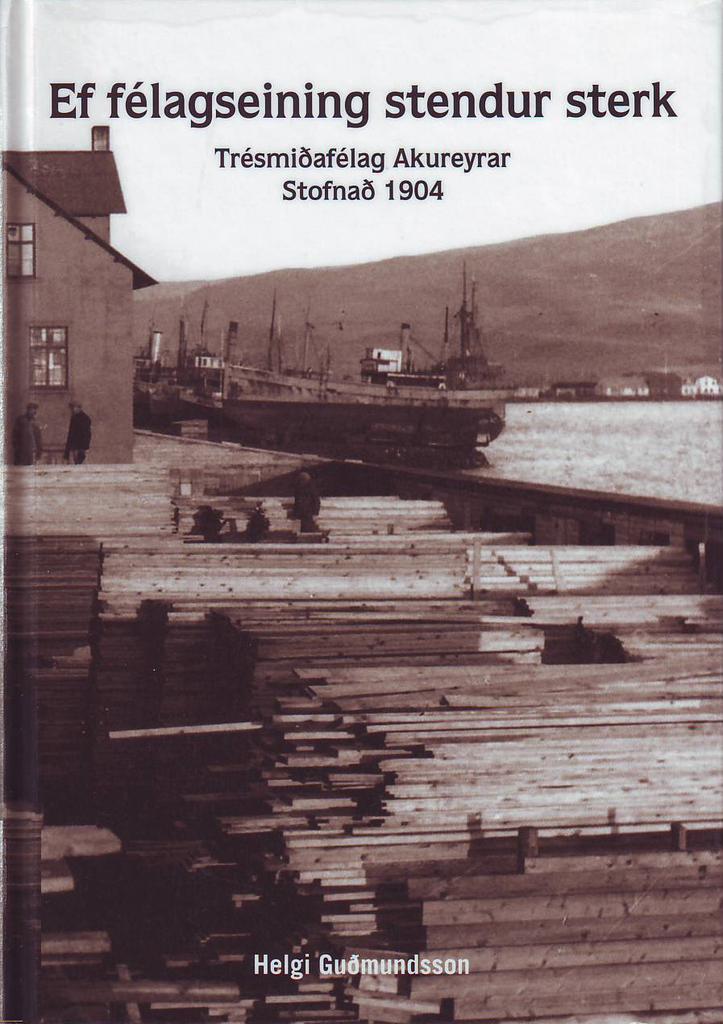
Ef félagseining stendur sterk (If the Social Unity Stands Strong)
Read moreKoma þeir heim úr kaffi í sumar?
Read more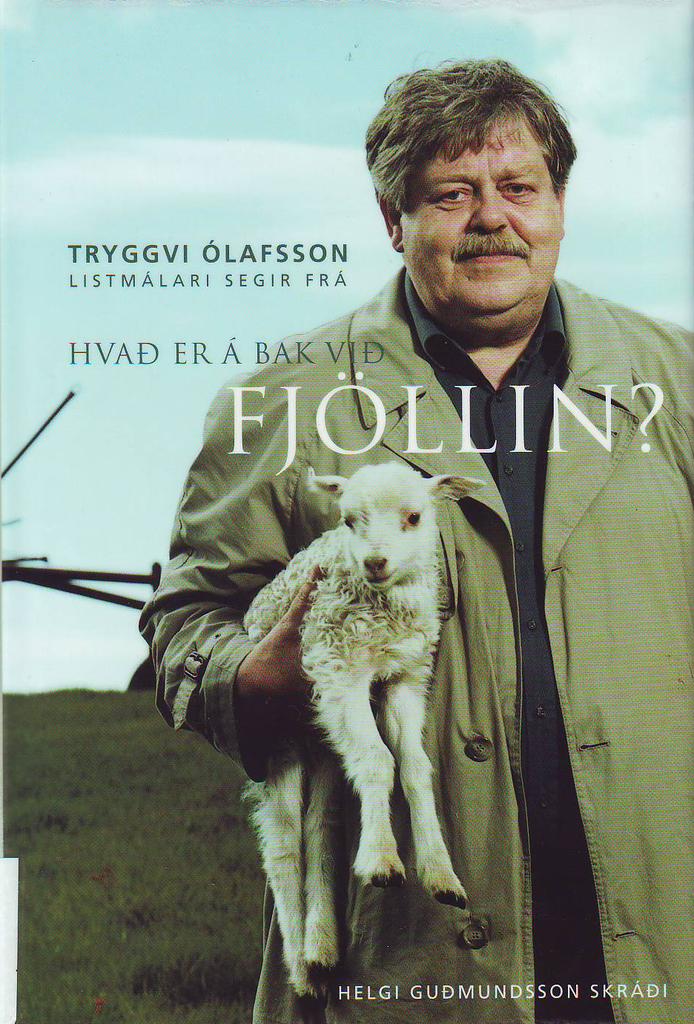
Hvað er á bak við fjöllin? (What´s Behind the Mountains?)
Read moreEitthvað nýtt að gerast: sögubrot af Tryggva Ólafssyni
Read moreMarkús Árelíus
Read moreMarsibil
Read more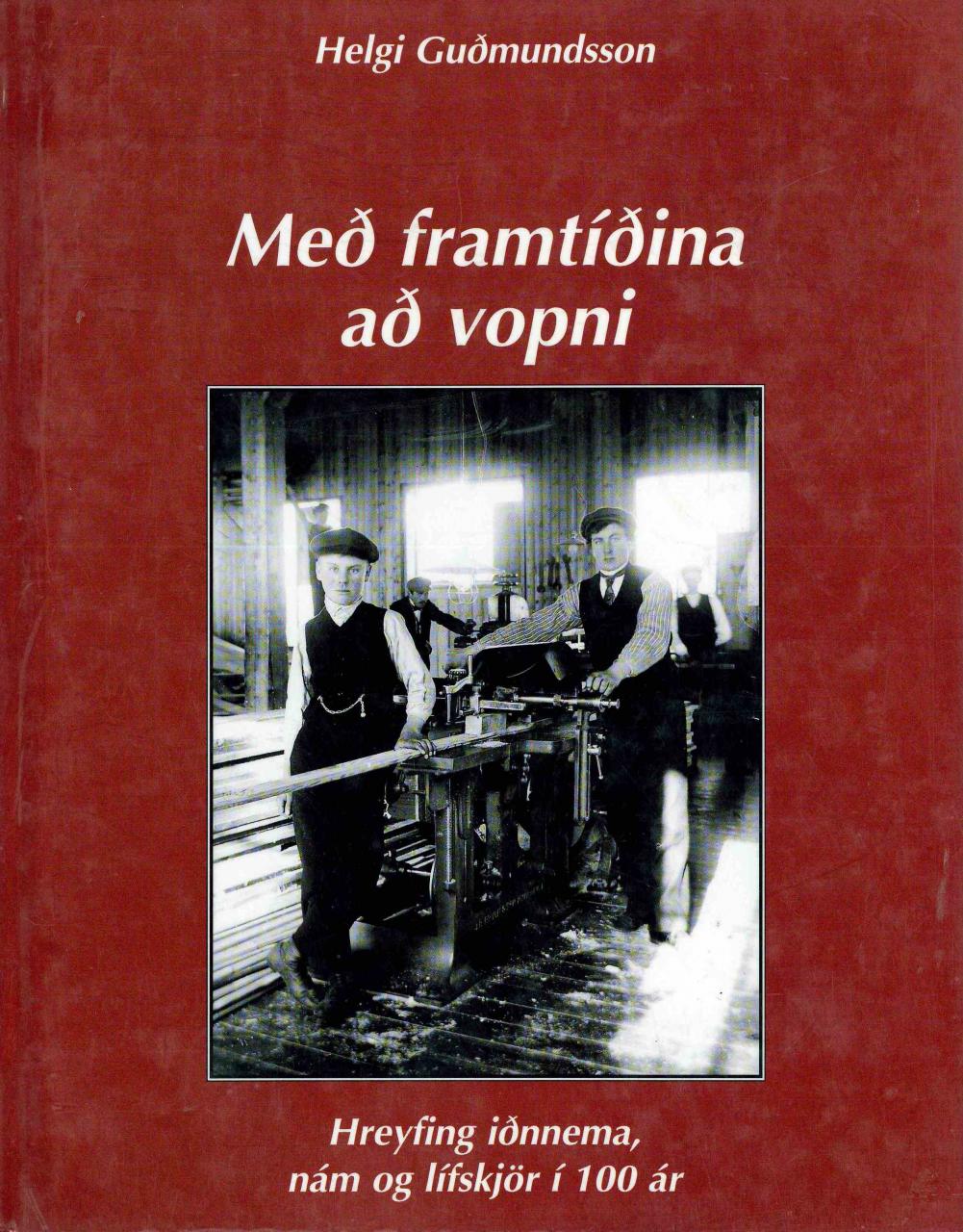
Með framtíðina að vopni (With the Future as Their Weapon)
Read more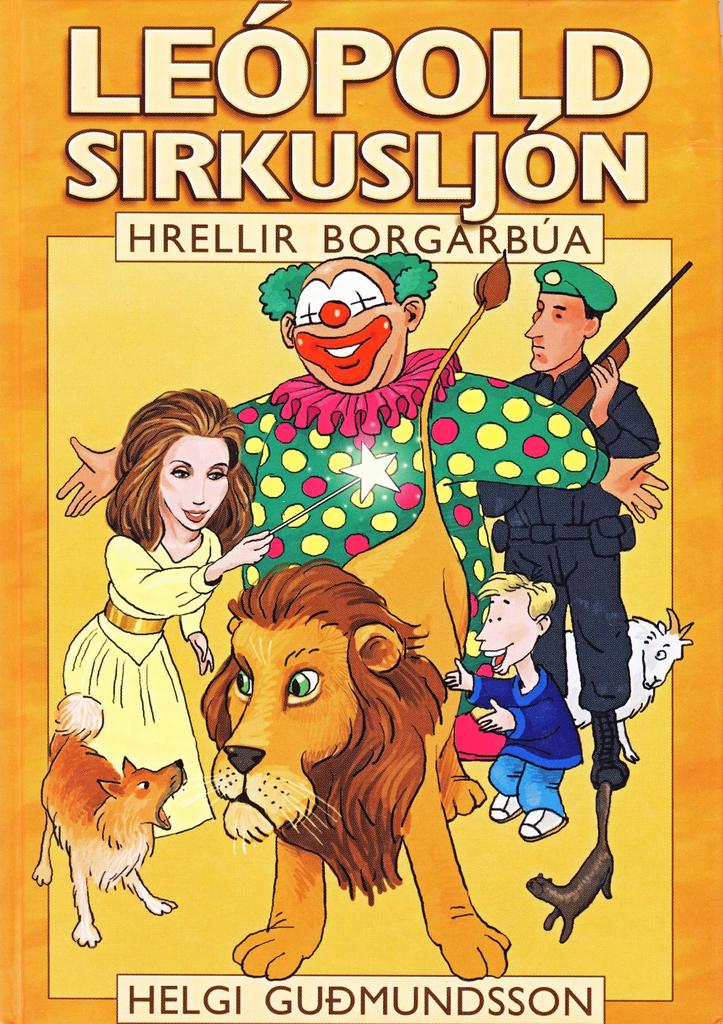
Leópold sirkusljón hrellir borgarbúa (Leopold the Circus-Lion Wreaks Havoc)
Read more
